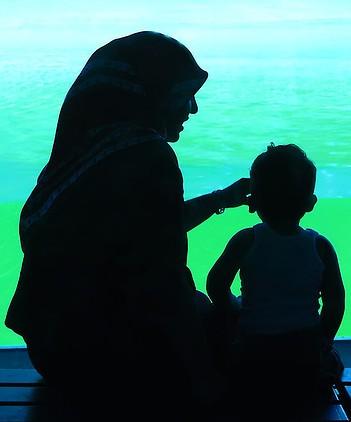The Wife’s desire to live separately
I am a newly wed wife and still trying to come to terms with my new role and circumstance. I personally feel that my husband and myself would be a lot happier if we were staying on our own rather than in the home of my in-laws. This is not to say that I am being ill treated but rather I would feel much more at ease if I had more privacy. From the viewpoint of the Islam, what rights do I have in this regard? Also briefly explain the basic rights of the wife. May Allah reward you.
While the religion of Islam propagates the loyalty of the wife to the husband, it also greatly emphasises on the rights of the wives. The Quran and Ahaadith are replete with such injunctions. Suraa Nisaa (S4) and Suraa Talaaq (S65) of the Quran specifically discusses the rights of women. In the light of the Quranic injunctions and the Ahaadith of The Prophet (Peace be upon him), the Jurists have outlined three basic rights of the wife: 1. Shelter 2. Food 3. Clothing. The mentioned are the basic necessities of every living individual. However since the domestic duties (nurturing of the children and caring for the husband) will occupy the wife fully, it is now Fardh and the sole responsibility of the husband to provide the wife with the above three necessities.
Just as it is Fardh for the husband to read Salaat and to Fast, it is also Fardh to fulfil the rights of the wife. Just as it is a major sin to be negligent towards Salaat and Fasting in Ramadaan, so too it is a major sin to be negligent towards the rights of the wife. If a person treats the injunctions of Salaat and Fasting lightly it leads to Kufr, so too if he treats the injunctions of the rights of the wife lightly. Allah Ta’aala says in the Quran:
“And provide them shelter where you stay and do not harm or frustrate them” (S65. V6) When a man divorces his wife, he must provide her shelter during her Iddat. Even when the marriage has deteriorated, the husband has to provide her shelter. How much more important it is upon him to fulfil the obligations during the normal marriage period. The verse clearly indicates that the husband must provide shelter for the wife. This is to protect her belongings and her privacy. However, the Jurists have mentioned that the financial situation of both partners to be taken into consideration in fulfilling her rights. If the husband and the wife (her parents) are of a financially high class, then the wife is entitled to a completely separate house. If they are of a financially middle class, then she is entitled to an apartment, that is a room in a house with a separate kitchen, toilet and bathroom. If they are of a financially low class, then the wife is only entitled to a separate room. It is not permissible for nay person of the house to enter her room without her consent. She is not entitled to a private kitchen, toilet and bathroom. She will have to share these facilities with other members of the house. (Shami Vol 2)
Since the financial situation of every individual differs according to his income, expenses etc, therefore it is difficult to precisely specify a ruling without intimate knowledge of he financial situation of the specific case. Every individual must fear Allah Ta’aala, understand his obligation and fulfil it accordingly. The husband will be answerable to Allah if he failed in carrying out his duty in fulfilling the rights of the wife. If the husband is of high or middle financial ranking, he cannot impose upon is wife to stay in the same house of the parents. If she stays with them of her own wish and accord then it is her choice.Especially cases where the parents are very emotionally attached to the son (or grandchildren) or are in need of the khidmat (care) of the son; should the wife make a personal sacrifice she will then receive a great reward. However, she cannot be compelled.
Allah knows best.
Extract from “Al-Jamiat” Vol 3 No 3 by Awake to the Call of Islam Vol 5 No 10.
